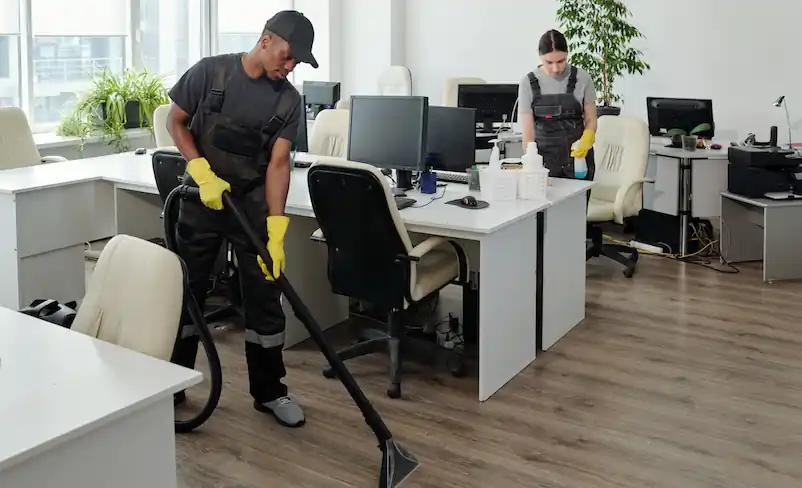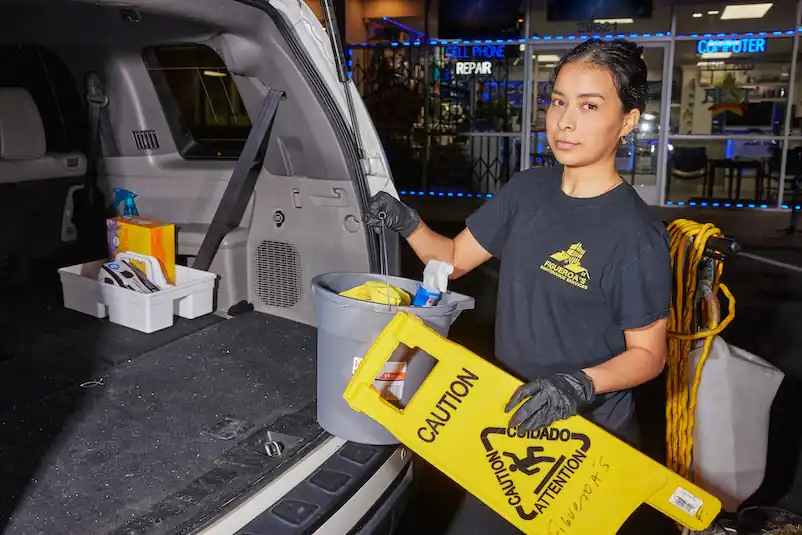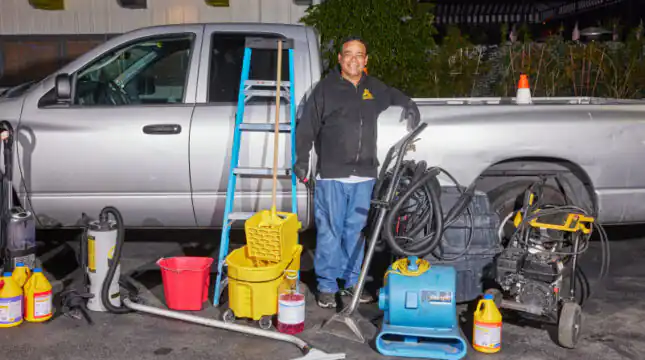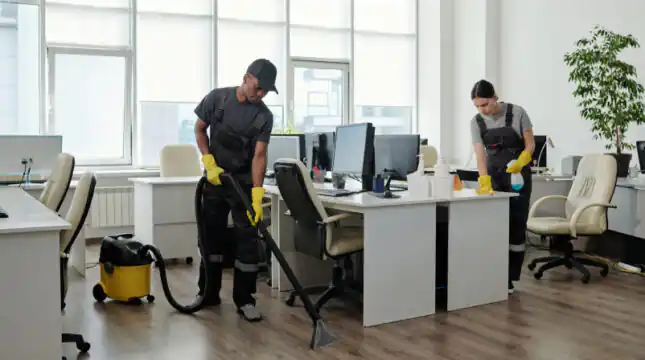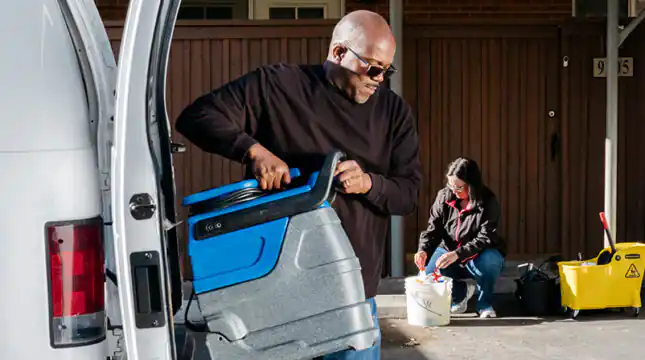How much does it cost to start a cleaning business?
Startup costs vary, but many residential cleaning businesses can start for $500 to $3,000. That typically covers supplies, equipment, registration and insurance.
If you’re launching a commercial cleaning business, expect higher costs for tools and transportation —potentially $10,000 or more.
Startup costs for a cleaning business
Understanding your startup costs can help you stay on budget and set realistic goals for growing your cleaning business. Your initial investment will depend on what services you offer, but some cleaning businesses can get started for under $2,000. Typically, transportation and cleaning supplies are your main expenses for basic cleaning services.
Essentials include a commercial vacuum, mops, microfiber cloths and basic cleaning products. If you offer window or carpet cleaning, you’ll need specialized tools.
Don’t forget to factor in: business registration, licenses, business insurance, uniforms, marketing materials and any software you plan to use.
Cleaning business fixed and variable costs
Fixed costs stay the same each month — think insurance premiums, software subscriptions or loan payments. Variable costs shift depending on your workload: cleaning supplies, fuel, labor, and wear-and-tear on your equipment.
How should I price my cleaning services and take payment?
Most cleaning businesses charge hourly, per job or by square footage. Your rate should cover your costs and align with your market. Consider offering service tiers — like basic, deep or add-ons — to give clients options and boost your earnings.
Your pricing should cover your costs, reflect the value of your work and fit your market. You can charge by the hour, per job, or by square footage. Some businesses offer packages like standard vs. deep cleaning. Starting low may help attract customers, but make sure your rates still leave room for profit.
Make payments as simple as possible. Many cleaners start with cash, checks or credit cards, but digital payments like Square or Venmo make you look more modern — and help you get paid faster. Set clear policies for cancellations and overdue payments.
Set aside a small reserve to help you cover slow weeks or invest in growth, like hiring help or adding new services.
Common cleaning business mistakes — and how to avoid them
Even the most careful cleaning pros run into issues sometimes. But knowing what to watch out for, and how to prevent it, can help you avoid costly insurance claims and protect your business reputation.
1. Property damage
Accidents happen — like damaging a client’s countertop or using the wrong product on a delicate surface — and repairs can be expensive.
How to avoid:
- Train yourself (and your team) to check surfaces before applying any product.
- Ask clients to put away breakables before you get to work.
- Help protect yourself with general liability insurance coverage.
2. Slip-and-fall accidents
Slippery floors, cords or misplaced gear can cause someone to trip or fall, and a client could hold you liable.
How to avoid:
- Use wet floor signs when needed.
- Keep tools and equipment out of walkways.
- Make sure your general liability coverage is up to date for the scope of your business.
3. Security lapses
Losing a key or forgetting to lock up could risk a client’s property (and your reputation).
How to avoid:
- Use a lockbox or tracking system for keys and codes.
- Double-check all doors and windows before you leave.
4. Chemical-related injuries
Harsh chemicals or poor ventilation can lead to headaches, rashes or worse for your workers or yourself, especially in small or enclosed spaces.
How to avoid:
- Follow product labels and avoid mixing cleaners.
- Keep work areas ventilated and store chemicals safely.
- Help protect your business interests with workers’ compensation insurance.
5. Equipment theft or loss
If you leave a vacuum or pressure washer out in the open, it might not be there when you get back.
How to avoid:
- Never leave equipment unattended in public spaces.
- Store gear in locked vehicles or secure areas.
- Carry tools and equipment insurance to help with replacement of essential work gear quickly.




